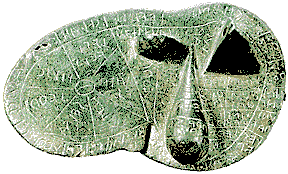| |||||||||||||||||||||||||||||||||
| Facts > Pagan Ideas > Prophecy | ||||
| Jesus fulfilled prophecy—Pagan Gods fulfilled prophecy first |
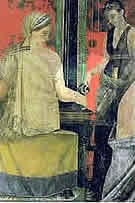
What could be called more divine
than |
|
Was Christianity new? Was Christianity
unique? Pagan prophets predicted the future—correctly. You know this if you've heard of the famous oracle at Delphi. You probably also know that our word "auspicious" comes from "auspices", the Roman religious ritual where priests told the future by reading the livers of sacrificed animals. (Sheesh. Have you noticed how often other peoples' beliefs are crazy stupid?) Prophsies were like other miracles. Paganism had plenty of them, the early Christains believed in the Pagan miracles (though they often attributed them to Pagan demons). Early Christianity also had plenty of spirit filled prophets of it's own. Both Christians and Pagans understood their prophesies with the same—Pagan—ideas. |
| Reasons |
|
|
| SOP |
|
|
Why the mess? POCM 2012 |
 |
|
Jews too
|
"the signs that were so evident, and did so plainly foretell their the Jews future desolation."Josephus, Jewish War, ,6.5.288 He goes on: "Thus there was a star resembling a sword, which stood over the city, and a comet, that continued a whole year." 6.5.289 And in the Temple, "at the ninth hour of the night of the night a great light shone round the altar....This light seemed to be a good sign to the naive, but was so interpreted by the sacred scribes as to portend the events that followed." 6.5.291- 293 And, "also, a heifer, as she was led by the high priest to be sacrificed, brought forth a lamb in the midst of the temple." 6.5.292 "Moreover, the eastern gate of the inner temple. . .was seen to be opened of its own accord. This also the vulgar thought a happy prodigy...but the men of learning understood it."6.5.293 - 295 And, "...chariots and troops of soldiers in their armor were seen running about among the clouds. 6.5.298 - 299 And "Jesus, son of Ananus...came to that feast whereon.. everyone makes tabernacles to God in the temple...and began on a sudden to cry aloud, "A voice from the east, a voice from the west, a voice from the four winds, a voice against Jerusalem and the holy house." 6.5.300- 301 |
| Why so many prophesies? | |
|
What was going to happen next was nothing more that what the Pagan Gods planned to do next, so of course the Pagan Gods and their prophets knew the future. One good thing about Pagan Gods was they didn't
mind letting on what they knew about the future. So, like Pagan
miracles generally,
Pagan prophecy-miracles number in the tens of thousands. You
run out of patience before you run out of prophecy miracles. So here
at POCM, I've included enough to give you a sense of how central prophecy
was to Paganism. Need more? Just pick up Herodotus, Livy, Josephus,
or any other ancient historian. They're chock-a-block with prophecy-miracles.
Guaranteed. |
| Christians believed Pagan prophesies | |
|
Delphic oracle done by demons. |
If, then, the Pythian
priestess is beside herself when she prophesies,
what spirit must that be which fills her mind and clouds her judgment
with darkness, unless it be of the same order with
those demons which many Christians cast out of persons possessed
with them? And this, we may observe, they do without the use of any
curious arts of magic, or incantations, but merely by prayer and simple
adjurations which the plainest person can use. |
|
Moreover, if it is believed not only among Christians
and Jews, but also by many others among the Greeks and Barbarians, that
the human soul lives and subsists
after its separation from the body;
and if reason supports the idea that pure souls which are not weighed
down with sin as with a weight of lead ascend on high to the region
of purer and more ethereal bodies, leaving here below their grosser
bodies along with their impurities; whereas souls
that are polluted and dragged down to the earth by their sins, so that
they are unable even to breathe upwards, wander
hither and thither, at some times about
sepulchres, where they appear as the apparitions of shadowy
spirits, at others among other objects on the ground;--if this
is so, what are we to think of those spirits that are attached
for entire ages, as I may say, to particular dwellings and places, whether
by a sort of magical force or by their own natural wickedness?
Are we not compelled by reason to set down as evil such spirits as employ
the power of prophesying—a
power in itself neither good nor bad—for the purpose of deceiving
men, and thus turn them away from God, and from the purity of His service?
|
|
Justin Martyr acknowledges Pagan miracles—says Christian miracles are similar |
For let even necromancy,
and the divinations you practise
by immaculate children, and the evoking
of departed human souls, and those who are called among the magi,
Dream-senders and Assistant-spirits
(Familiars), and all that is done by those who are skilled
in such matters--let these persuade you that even after death
souls are in a state of sensation; and those who are seized and cast
about by the spirits of the dead, whom all call daemoniacs or madmen;
and what you repute as oracles,
both of Amphilochus, Dodana, Pytho,
and as many other such as exist; and the opinions of
your authors, Empedocles and Pythagoras, Plato and Socrates, and the
pit of Homer, and the descent of Ulysses to inspect these things, and
all that has been uttered of a like kind.
Such favour as you grant to these, grant also to us, who not
less but more firmly than they believe in God; since we expect to receive
again our own bodies, though they be dead and cast into the earth, for
we maintain that with God nothing is impossible. |
|
But, to use the very words of Celsus, let it be
granted that "the sun, moon, and stars do foretell
rain, and heat, and clouds, and thunders," why, then,
if they really do foretell such great things,
ought we not rather to do homage to God, whose servant they are in uttering
these predictions, and show reverence to Him rather than His
prophets? Let them predict, then,
the approach of lightnings, and fruits, and all manner of productions,
and let all such things be under their administration; yet we shall
not on that account worship those who themselves offer worship, as we
do not worship even Moses, and those prophets who came from God after
him, and who predicted better things than rain, and heat, and clouds,
and thunders, and lightnings, and fruits, and all sorts of productions
visible to the senses. Nay, even if sun, and moon, and stars were able
to prophesy better things than rain, not even then shall we worship
them, but the Father of the prophecies which are in them, and the Word
of God, their minister. But grant
that they are His heralds, and truly messengers of heaven, why, even
then ought we not to worship the God whom they only proclaim and announce,
rather than those who are the heralds and messengers? |
|
Origen acknowledges pagan prophesies
|
In the next place, miracles were performed
in all countries, or at least in many of them, as Celsus himself
admits, instancing the case of Asclepius,
who conferred benefits on many, and who foretold
future events to entire cities, which were dedicated to him,
such as Tricca, and Epidaurus, and Cos, and Pergamus... |
|||||||||
|
Celsus mentions a multitude of Pagan oracles |
Celsus goes on to say of us: "They Christians
set no value on the oracles
of the Pythian priestess,
of the priests of Dodona,
of Clarus, of Branchidae,
of Jupiter Ammon, and of a
multitude of others; although under their guidance we
may say that colonies were sent forth, and the whole world peopled. |
|
Origen admits the oracles are real, but says: demons! |
the Christian father Origen
replies |
|
Maxentius told: this day an enemy of Rome will perish |
44.7 Discord arose in the city and the emperor
Maxentius was upbraided for abdicating responsibility…..
44.8 Disconcerted by this cry, he curried away and, summoning some senators,
he ordered the Sibylline books to be consulted. In them was found the
statement that on that day the enemy
of Rome would perish. |
|
Christianity borrowed the Pagan notion of SibyllineOracles |
In pagan
times the oracles and predictions
ascribed to the sibyls were carefully collected and jealously
guarded in the temple of Jupiter Capitolinus, and were
consulted only in times of grave crises. Because of the vogue enjoyed
by these heathen oracles and because of the influence they had in shaping
the religious views of the period, the Hellenistic
Jews in Alexandria, during the second century B.C. composed
verses in the same form, attributing them to the sibyls, and
circulated them among the pagans as a means of diffusing Judaistic doctrines
and teaching. This custom was continued down into Christian times, and
was borrowed by some Christians
so that in the second or third century, a new class of oracles
emanating from Christian sources came into being. Hence the
Sibylline Oracles can be classed as Pagan, Jewish, or Christian. |
| Christian prophesies | |
|
Second century Christian prophetess |
in the period after the emperor Alexander Severus
(193 - 211 AD)... There were numerous frequent earthquakes…
some towns were even swallowed up by cracks opening in the ground and
taken down to the depths. …. |
|
And while he Polycarp
was praying he fell into a trance
three days before his arrest, and he saw his pillow being consumed by
fire. And he turned and said to those who were with him: "It
is necessary that I be burned alive." |
| Examples | |
| Oracles | |
| Omens | |
| Prodigies | |
| Dreams | |
| Divination | |
| Auspices |
| Prophesies | |
| |
| Christian prophets foretold the future. Pagan prophecy readers and Sibyls and the Pythian priestess and the priests of Dodona and Clarus and Branchidae and Jupiter Amon and a multitude of others and Pythagoras and his disciples foretold the future first. |
|
Apollonius had the power of prophecy
>> |
For the circumstance that Apollonius
foresaw and foreknew so many things does not in the least justify
us in imputing to him this kind of wisdom black magic; we might as
well accuse Socrates of the
same, because, thanks to his familiar spirit, he knew things
beforehand, and we
might also accuse Anaxagoras
because of the many things he foretold. |
|
Christian prophets foretold the future. Pagan prophecy readers and Sybils and the Pythian priestess and the priests of Dodona and Clarus and Branchidae and Jupiter Amon and a multitude of others and Pythagoras and his disciples and the godman Apollonius of Tyana and Socrates and Anaxagoras foretold the future first. Are you seeing the pattern here? |
|
"Amphiaraus
had been a seer during his lifetime. After a mysterious death (Zeus
clove the ground in front of his chariot and he was swallowed up), he
continued prophesying from a famous
shrine in central Greece. The son's oracle was located in the
town of Mallus." |
|
Christian prophets foretold the future. Pagan prophecy readers and Sybils and the Pythian priestess and the priests of Dodona and Clarus and Branchidae and Jupiter Amon and a multitude of others and Pythagoras and his disciples and the godman Apollonius of Tyana and Socrates and Anaxagoras and the priests at Delos and Dymma, and Amphilochus and Amphiarus and Glycon's prophet Alexander foretold the future first. |
|
Christian prophets foretold the future. Pagan prophecy readers and Sybils and the Pythian priestess and the priests of Dodona and Clarus and Branchidae and Jupiter Amon and a multitude of others and Pythagoras and his disciples and the godman Apollonius of Tyana and Socrates and Anaxagoras and the priests at Delos and Dymma, and Amphilochus and Amphiarus and Glycon's prophet Alexander and the nation of the Greeks, and the nation of the Telmessians, and the nation of the Carians and the nation of the Phyrgians, and the nation of the Isaurians and the nation of the Cyprians foretold the future first. Are you seeing the pattern here? Prophecies made and prophecies fulfilled were basic to Paganism. I promised we'd run out of patience before we ran out of prophecies. And so we have. |
| Oracles | |
| |
|
Christian prophets foretold the future. Pagan prophecy readers foretold the future first. |
Sibyls = prophetesseseszz One good thing about Pagan Gods was they didn't mind letting on what they knew about the future. You could get a forecast by consulting a Sibyl. (Why "Sibyls"? Because it was easier than "prophetesseseszz." The ancients didn't have spill chuckers.) Here's the second century Christian writer Justin Martyr describing a Pagan Sybil at work >> A Sybil was a woman, a prophetess who spoke God's words for Him. There were lots of Sibyls in lots of places. A God would move the Sibyl to speak, someone would quick write down what she said and later on folks would consult her words (in Rome they kept them in them the "Sibylline Books"—you'll someday run across that term in the ancient texts) for help foretelling the future. |
The ancient Sibyl, who by some kind of potent inspiration teaches you, through her oracular predictions, truths which seem to be much akin to the teaching of the prophets. She ... uttered her oracular sayings in a city called Cumae ... And they who had heard it from their fathers as part of their country's tradition, told us that it was here she used to publish her oracles. . .. They said that she washed, and having put on her robe again, retires into the inmost chamber of the basilica, which is still a part of the one stone; and sitting in the middle of the chamber on a high rostrum and throne, thus proclaims her oracles. |
|||
| Many writers, including Plato said Justin Martyr, agreed that such prophecies were divinely inspired >>
...and that their prophecies were fulfilled >>
...because the prophetesseseszz |
And both by many other writers has the Sibyl been
mentioned as a prophetess,
and also by Plato in his Phaedrus. And Plato
seems to me to have counted prophets divinely inspired
when He read her prophecies. For He saw that what
she had long ago predicted was accomplished; and on this account
He expresses in the Dialogue with Meno his wonder at and admiration
of prophets in the following terms: "Those whom we now
call prophetic persons we should rightly name divine. And not
least would we say that they are divine, and are raised to the prophetic
ecstasy by the inspiration and possession
of God, when they correctly speak of many and important
matters, and yet know nothing of what they are saying,"--plainly
and manifestly referring to the prophecies of the Sibyl. |
|
Christian prophets foretold the future. Pagan prophecy readers and Sybils foretold the future first. |
You'd figure the place a Sibyl worked would be a Sibylarium, but it wasn't. It was an oracle. The predictions she gave were also oracles. Sometimes the Sybil was called an oracle. It was fun to say "oracle," so they used it whenever they could. Try it yourself: Oracle, oracle, oracle. See? Pagans had lots of oracles,
|
Celsus goes on to say of us: "They Christians
set no value on the oracles
of the Pythian priestess,
of the priests of Dodona,
of Clarus, of Branchidae,
of Jupiter Ammon, and of a
multitude of others; although under their guidance we
may say that colonies were sent forth, and the whole world peopled. |
|
Christian prophets foretold the future. Pagan prophecy readers and Sybils and the Pythian priestess and the priests of Dodona and Clarus and Branchidae and Jupiter Amon and a multitude of others foretold the future first. |
|
The Epidaurian images |
5.82. The ancient feud between the Aeginetans
and Athenians arose out of the following circumstances. Once upon a
time the land of Epidaurus would
bear no crops, and the Epidaurians sent to consult the oracle
of Delphi concerning their affliction. The answer bade them
set up the images of Damia and Auxesia, and promised them better fortune
when that should be done. "Shall the images be made of bronze
or stone?" the Epidaurians asked; but the priestess replied, "Of
neither: but let then be made of the garden olive." Then the Epidaurians
sent to Athens and asked leave to cut olive wood in Attica, believing
the Athenian olives to be the holiest; or, according to others, because
there were no olives at that time anywhere else in all the world but
at Athens. The Athenians answered that they would give them leave, but
on condition of their bringing offerings year by year to Athena Polias
and to Erechtheus. The Epidaurians agreed, and having obtained what
they wanted, made the images of olive wood, and set them up in their
own country. Henceforth their land
bore its crops, and they duly paid the Athenians what had been
agreed upon. |
| Omens | |
| |
| Prodigies | |
| |
|
As Xerxes leaves to attack Greece, the sun quit the sky. |
7.37. And now when all was prepared-the bridges,
and the works at Athos, the breakwaters about the mouths of the cutting,
which were made to hinder the surf from blocking up the entrances, and
the cutting itself; and when the news came to Xerxes that this last
was completely finished, then at length the host, having first wintered
at Sardis, began its march towards Abydos , fully equipped, on the first
approach of spring. At the moment
of departure, the sun suddenly quitted his seat in the heavens, and
disappeared, though there were no clouds in sight, but the sky was clear
and serene. Day was thus turned into night; whereupon
Xerxes, who saw and remarked the prodigy,
was seized with alarm, and sending at once for the
Magians, inquired of them the meaning of the portent. They replied,
"God is foreshowing to
the Greeks the destruction of their cities; for the
sun foretells for them and the moon for us." So
Xerxes, thus instructed, proceeded on his way with great gladness of
heart. |
| Dreams | |
| |
| |
| |
| |
| |
| Divination | |
| |
| Auspices | |
| |
|
Augury Liver-reading Pagan priests learned how to read livers by consulting model livers like this one >> |
|
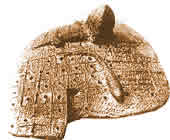
 Christian
ideas about prophesy were identical with Pagan ideas about prophesy—the
only difference was Christians believed their prophesy came from their
one true God and Pagan prophesies came from Pagan demons. Christian
ideas about prophesy come from deep in the Pagan center of ancient culture
Christian
ideas about prophesy were identical with Pagan ideas about prophesy—the
only difference was Christians believed their prophesy came from their
one true God and Pagan prophesies came from Pagan demons. Christian
ideas about prophesy come from deep in the Pagan center of ancient culture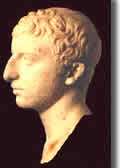

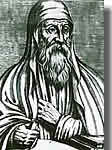

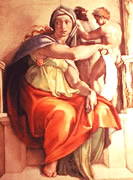
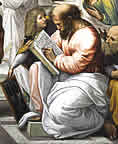
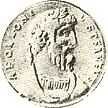
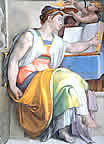
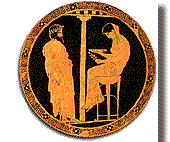

 Livy
describes the
Livy
describes the 